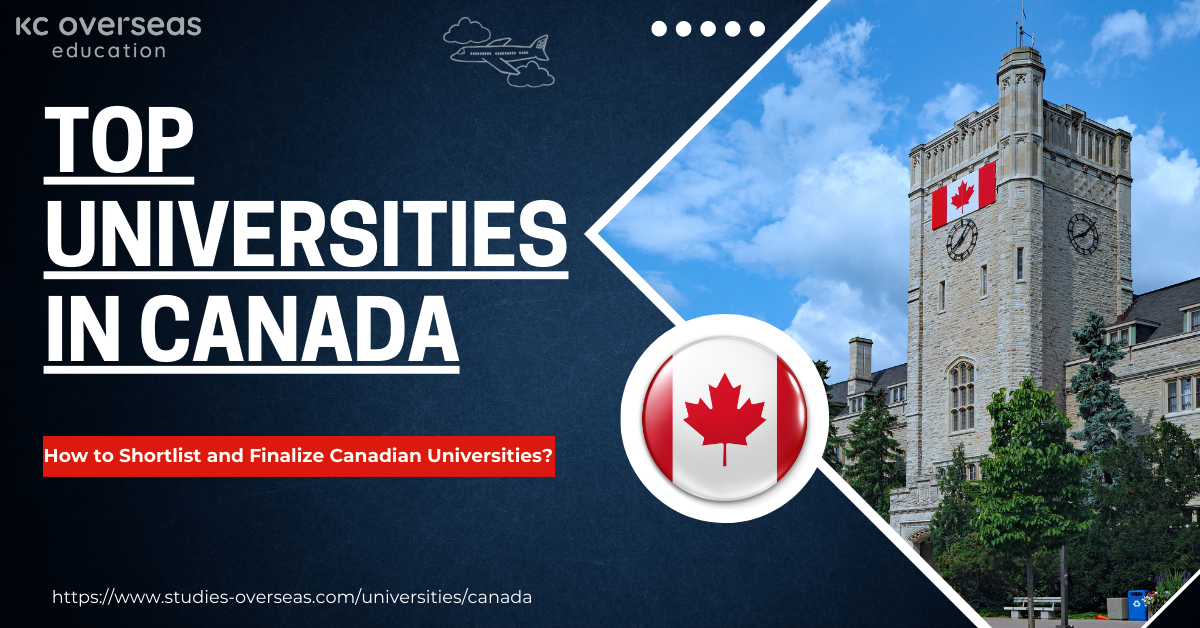After passing the required entry examinations, a student’s next step is to investigate and create a short list of potential universities. It should come as no surprise that international students prefer Canada. Numerous Canadian institutions rank in the top 50 in the world and offer top-notch educational opportunities to their students.
Being a student at a prominent university has numerous advantages. In addition to getting knowledge about the subject from instructors and other experts in the field, students who complete their degree find it much simpler to secure jobs. As a result, new learners in Canada are constantly looking for the top educational institutions.
A few suggestions could prove helpful during the shortlisting phase of best colleges in Canada for international students.
Consider Your Results on the Required Tests
Students should consider their results on language exams while reducing the number of colleges on their list of options. This is because many institutions base their admissions decisions heavily on the results of language exams.
The most popular English language test that Canadian institutions accept is the International English Language Testing System exam (IELTS). Because IELTS scores are accepted by colleges worldwide, their acceptance rate is higher. Prospective students should confirm the requirements with the colleges they are interested in attending, just to be sure.
Check Out the Cost of Attending a university.
Since the budget will serve as a guide for all of one’s spending decisions, it is important to prioritize it. So, the price should be something to consider while compiling a list of Canadian universities. When we discuss the costs of attending an institution, we don’t only mean the out-of-pocket expenses like tuition and books.
Students must additionally pay for living expenses such as food, transportation, rent or a dorm room, in addition to tuition and fees. When choosing an institution, students want to take into account both its location and reputation.
Examine and consider the courses and job prospects.
Check the type of on-campus employment available to students at the institution or university. The university needs to be connected to important organisations as well. This is not simply for the future careers of the students. Opportunities for gaining job experience should be provided to students even when they are enrolled in classes.
The only way the institution can accomplish this is through collaborations with well-established companies. As a result, your degree will be more valuable, and the university will gain more recognition in the corporate community. Students need this if they hope to work for respectable companies in the future.
Additionally, candidates must be aware of the Cooperative Education scheme, or “co-op programme.”
It is a different kind of degree than traditional academic courses. Students who participate in a co-op course get the opportunity to work in industries that are relevant to their coursework and get a firsthand look at potential career paths.
When applying to universities, exercise discretion.
It’s acceptable that you are applying to multiple colleges at the same time. Remember that before you submit your materials, many universities and institutions require a non-refundable application fee. This is an extra cost on top of the time and effort you will need to put into it.
A student should therefore normally apply to eight or ten universities. Sending out twenty applications that you aren’t serious about won’t drive you insane. Choose your schools wisely and limit your application to those establishments.
Remember the bigger picture.
As you read these materials, consider the professional options available to you once you get this degree. It’s crucial to research the several career opportunities that are open to you with your degree, even though it can seem like you’re looking at a hundred years from now rather than only five. If you’re applying to professional institutions like law or medicine, the calibre of your university’s preparation can make all the difference in the world.
Make your beliefs your priority while you get ready for your time as a college student. Equip yourself with as much information as you can to make the best, most informed decision possible.
Life as an international student may be hectic, with a lot of regulations and deadlines to follow. Contacting Top Overseas Education Consultants will help you avoid feeling overwhelmed by overseas education, even though it might be overwhelming at times. Their experience might clear the path for an easy adjustment to living in your dream nation and university.
We hope this post was helpful to you in some way.

